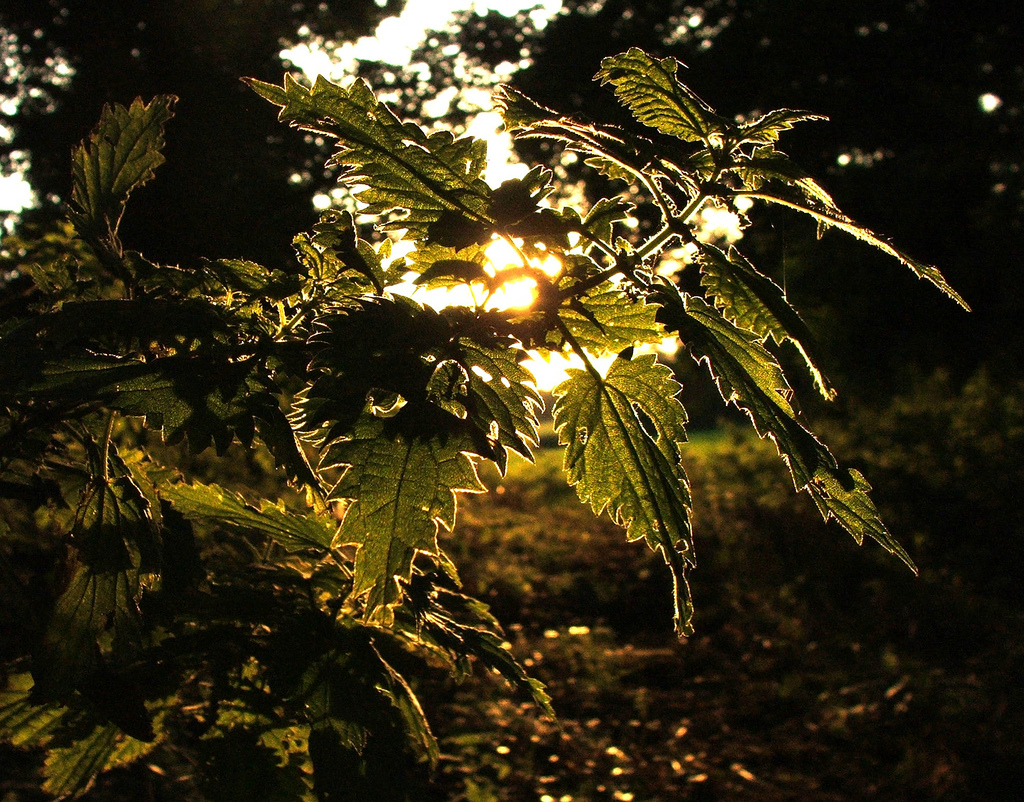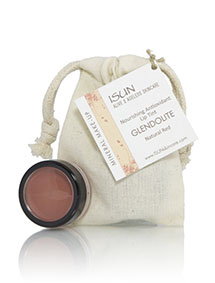
*Please see below for the sources of the following text.
Nettle is a magical medicinal plant. It has amazing astringent, expectorant, tonic, anti-inflammatory, diuretic properties and it is an important source of beta-carotene, vitamin A, C and E, iron, calcium, phosphates and minerals. It is a powerful remedy against hepatic, arthritic or rheumatic affections, and in treating allergies, anemia and kidney diseases.
Nettle is a blood-purifier of the highest caliber. Because of it’s high alkaline-mineral content (silicon and iron) and blood-building properties, it is a beautifier of the highest order. Nettle leaves are highly alkaline. They neutralize and dissolve acidic wastes in the blood. Their diuretic properties simultaneously help flush the blood and cleanse it through the action of the kidneys. Since both neutralizing and flushing characteristics are important for blood purification, stinging nettle is an excellent choice for complaints where toxicity and/or over-acidity of the tissues are the root of the problem, including poor skin quality, weak nails, damaged teeth, and loss of overall luster. It power to purify the blood will do wonders for chronic skin ailments. It is effective against eczema on the upper body, especially the face, neck, and ears.
Nettle leaves increase the function of the thyroid gland, increasing metabolism and helping to burn away fat while increasing energy. Nettles also help relieve excess mucous in the colon allowing for the release of excess waste.
Nettle leaves are so mineral rich that they satisfy hunger. Overeating can often an outward manifestation of a search for minerals. Eating food that is fully mineralized eventually makes us fully mineralized and provides us with the food-mineral cosmetics necessary to express true inner and outer beauty.

Properties
Nettle contains a great number of amino acids, glucidic substances, amines, sterols, cetones, ketones as methyl heptenone, acetophenone, volatile oil, fat substances, sitosterols, formic and acetic acid, panthotenic acid, folic acid, chlorophyl 0.3 – 0.8, protoporphyrine and coproporphynine. It also contains vitamins C, B2 and K, beta-carotene, Ca, Mg, Fe and Si salts, phosphates etc. Because of these compounds, the plant has anti-anaemic, anti-diabetic, hemostatic and diuretic properties.
Choline acetyltransferase is present in stinging nettle plants, as well as choline, acetylcholine, and serotonin. Presence of these compounds categorize the nettle as food for the nervous system.
Nettles also contain one of the highest levels of the beautifying mineral silicon found in any food.
Mixtures and Treatments
Perhaps the most well known property of nettle is that it stings. The stems and leaf-tops are covered with thin, hair-like protrusions. These protrusions, if touched, release a stinging fluid containing histamine and formic acid. The sting produces a temporary inflammation. The sting of the nettle is annoying to the skin, but not poisonous.
When nettles are eaten, the saliva neutralizes the sting, so that one cannot be stung in the mouth or throat.
It is said that if the plant did not sting, it would not have lasted through time. As a matter of fact, the Swiss priest, Kunzle, shows that nettle would have been destroyed by insects and animals by now, had it not defended itself by stinging. However, popular medicine has proved the usefulness of this property: fresh nettle leaves placed on the skin, and especially on the kidney area (a practice named urticaria) induces a stinging and burning sensation, with the effect of easing more profound rheumatic pains. Ancient shaman healers used to purposely strike their paralyzed patients with nettles in order to bring blood flow back into the muscles and skin.
Here are some of the ways to enjoy all the benefits of this wonder-plant:

Eating the Leaves
Come at the leaf from the bottom, folding it along its central crease, yanking it gently from the mother plant, and then rolling it up so as to enclose the top of the leaf (the stingers are most commonly found in the top of the leaf).
Nettle Tea
- It cures diseases and inflammations of the urinary system, and also urinary retentions. It has a slightly laxative effect, being recommended in depurative remedies. For hepatic, biliary affections as well as for affections of the spleen, the treatment with nettle tea will last for a number of weeks. Nettle tea can also be of great help to those who suffer from diabetes, because it leads to the decrease of blood sugar and implicitly, of the glycaemia level. It is useful in eliminating virosis, and bacterial infections. Preparation: the tea can be prepared through soaking the fresh or dried leaves in boiled water. This method allows the retention of active substances.
Nettle Infusion
- Washing the scalp with nettle (leaves or roots) infusion helps regenerate, grow and thicken the hair. Preparation: to prepare the infusion, 60g of finely crushed nettles are mixed with two and a half cups of water. The mixture is boiled, and then covered for 10 minutes. It can be consumed either hot or cold.
Nettle Tincture
- It eliminates dandruff and leaves the hair silky. It also strengthens and revitalizes the hair. Preparation: for ten days, six-seven fresh leaves or two spoons of dried plant are kept macerating in half a liter of alcohol. The mixture is then used to rub the hair root.
Nettle Juice
Running nettles through a juice machine is a unique way to access the the high-quality minerals and oils present in fresh nettles without having to risk being stung.The juice from stinging nettle leaves acts as an antidote to the sting when applied topically. Due to its rich iron content and ease of absorption, nettle juice is more effective than spinach juice in building blood. Given its propensity to neutralize and flush out acidic waste, nettle juice is perfect for weight reduction. Nettle juice can also be used as a hair rinse to restore natural color.
- For hypertension half a glass is drunk right before the most important meals. It has the effect of regulating arterial pressure and straightening blood vessels. In case of renal insufficiency, one glass of nettle juice per day should be consumed in the morning after waking up. In case of anemia and demineralization – one-two glasses of nettle juice are consumed daily for a period of two weeks. Preparation: nettle leaves and stem are gathered and put into the juicer.
Nettle Root Powder
- For frail dry hair 60 day treatments can be done, during which half a teaspoon of root powder is administered three times a day on an empty stomach. Preparation: the dried nettle roots are finely crushed using an electric coffee grinder.
My Love For Nettles
The absolute BEST way to enjoy nettles in all of their glory is to juice FRESH nettles. I feel so blessed have access to freshly picked nettles. I do not even have to go hunting in the forest for them. One of the wonderful organic farmers at my local Farmer’s Market has bunches of nettles quite frequently. I get so excited when I see them at the stand amongst all of the beautiful herbs and wildflowers. It costs only $1.00 for a whole small bag full of nettles, on the stalk! However, if you do live where nettles might be growing in your area, I highly suggest going on a nettle-picking adventure (look near streams, especially in California).
Nettle Leaf Powder
Another way to enjoy nettle nutrition is to eat them in a dry powder form. Billy’s Infinity Greens (coming soon to the Living Earth Beauty Store) contains a high concentration of this powder in its amazing superfoods formula.
How I Juice Nettles
I often juice a wide variety of green leafy vegetables, herbs, and hard veggies – what I find organic and in-season at the farmer’s market. I so look forward to growing all of this in our own garden someday soon! A typical juice blend will consist of items such as: dandelion greens, pea shoots, sunflower sprouts, kale, rainbow chard, parsley, cilantro, lemon balm, holy basil, fennel, cucumber, celery, etc. I always save the nettles for last. This is because I wear rubber gloves to handle them to avoid getting stung. Once I have juiced everything else, I pull out my rubber gloves, rinse the nettles with purified water and feed them into the juicer (I use the Green Star Gold) one stalk at a time. The stalks are usually thin enough to get pulled right in by the blades (which is always fun). Once I have finished juicing a large handful of nettle stalks and leaves, I pour the juice into the rest of the juice I already have put through a nut milk bag. I always double-filter my juice through a nut milk bag to remove all of the plant fiber for ease of absorption and digestion. I then stir the juice up, pour a tall glass for me and for Jed and put the rest in the fridge. The final step is to wash the juicing tools and the juicer with the gloves on, since there are often stray leaves and pieces of the nettles still intact. Wearing rubber gloves for the washing phase of juicing is also an excellent way to preserve the beauty and softness of your hands!
Enjoy your nettles! Here’s to wellness, joy, and timeless beauty!





[…] Beauty Foods: Stinging Nettles! […]
[…] Beauty Foods: Stinging Nettles! […]
Great information Nettle. The root is recommended as a diuretic, for relief of benign prostatic hyperplasia (BPH) and other prostate problems, and as a natural remedy to treat or prevent baldness
[…] Beauty Foods: Stinging Nettles! | Living Earth Beauty […]
[…] Beauty Foods: Stinging Nettles! | Living Earth Beauty […]
I have a question, not a comment. I bought stinging nettle absolute 10ml, can I add it to water and drink it or add it to my hair products.
Thanks.
Thanks so much for your question!
I would not consume absolutes internally. Essential oils (as opposed to absolutes) can be consumed in tiny amounts, BUT only if they are of the highest quality possible and 100% pure. Nettle absolute can be used externally, though, and yes, like you said in your hair products. It can be used as an astringent for oily skin, and to balance dry skin. It is beneficial for scalp and hair conditions, like you mentioned. As well as for first aid, like insect bites and burns.
Be Well,
Jill
Do you think after juicing the nettles I can freeze the juice for later use without losing too much of the nutritional value? We are lucky to have an abundance of nettles on our farm and for the last three years I have been harvesting and drieing them but really like the idea of being able to have a “fresh” nettle juice after they have ended their season.
Hi Luana! I imagine you could freeze it for 1-3 months without losing its nutriance. I recommend freezing in ice cube treys, than transferring to a plastic bag for storing